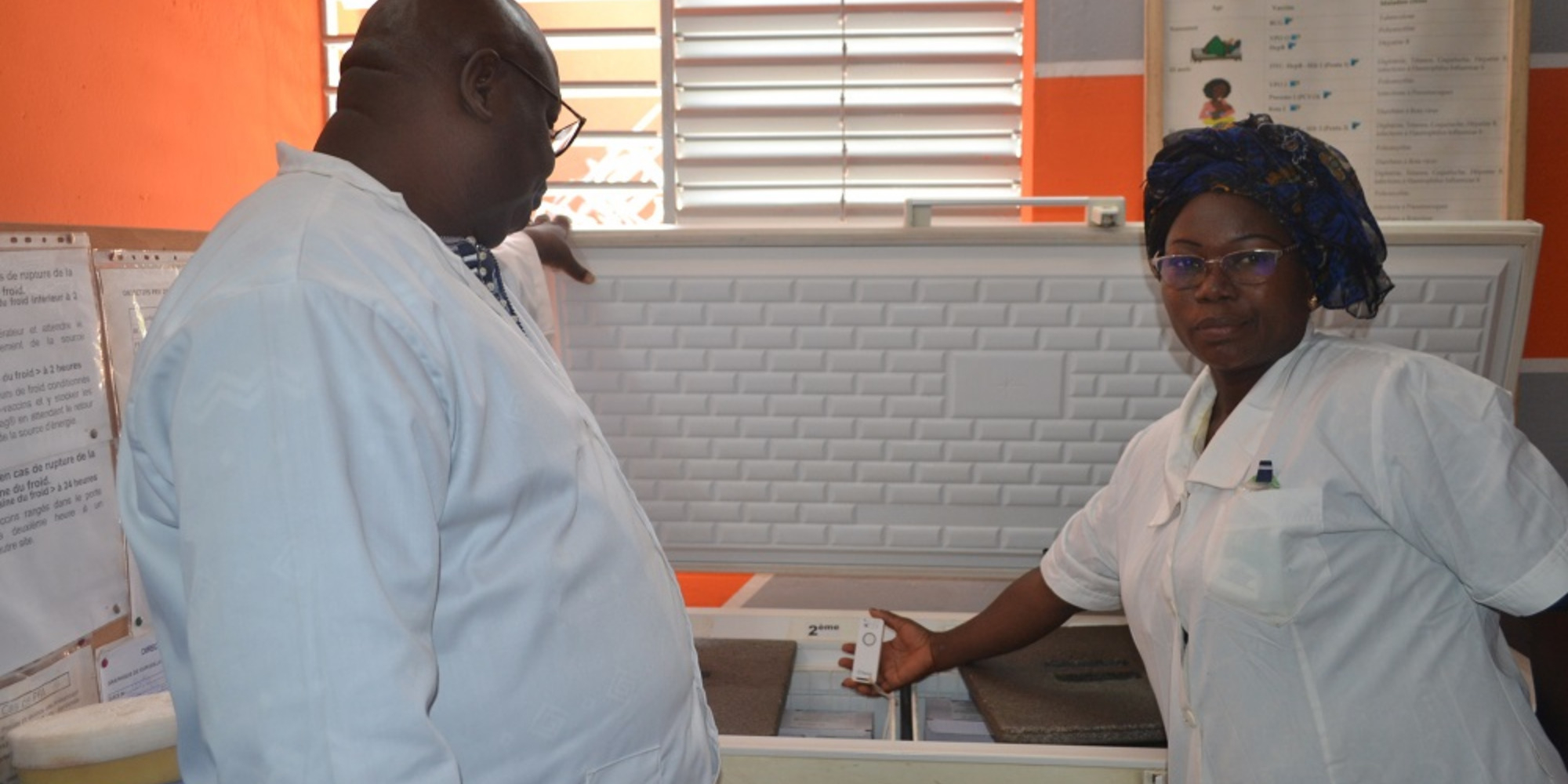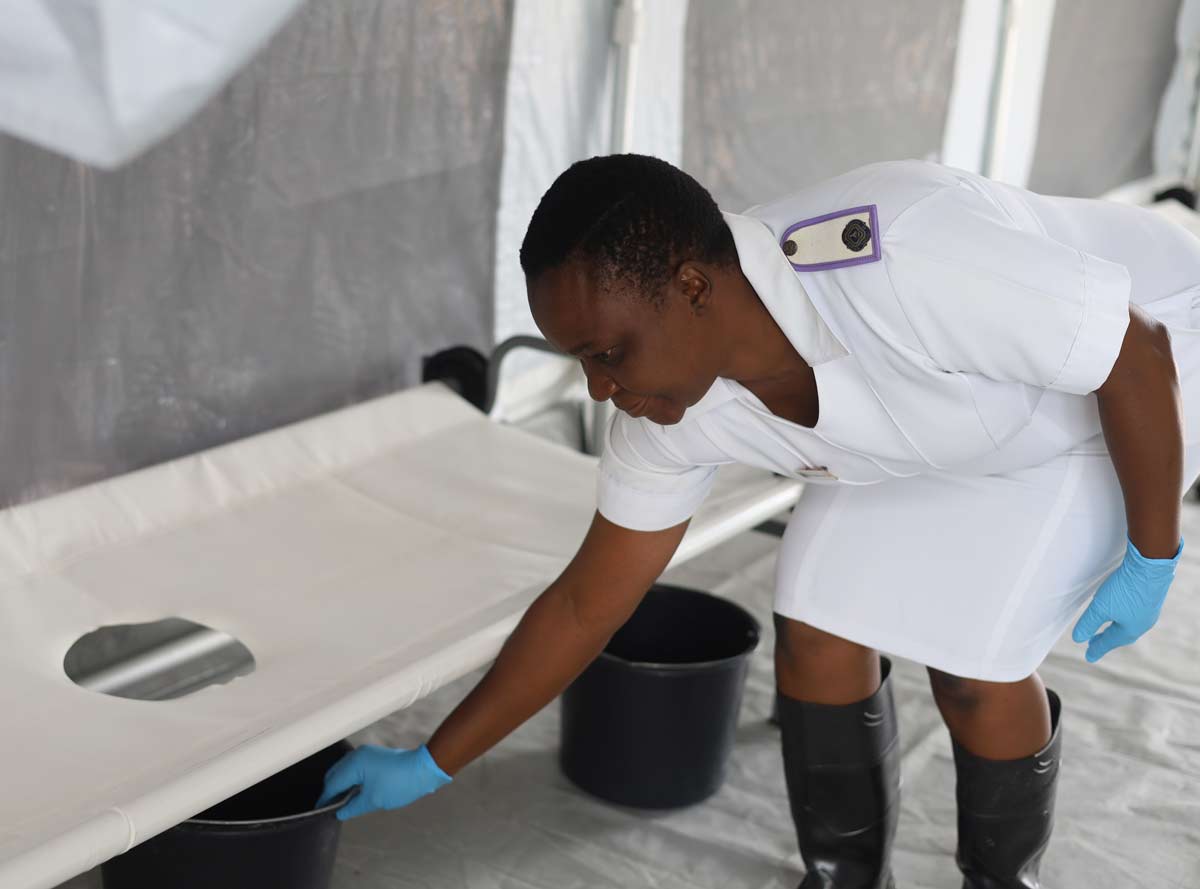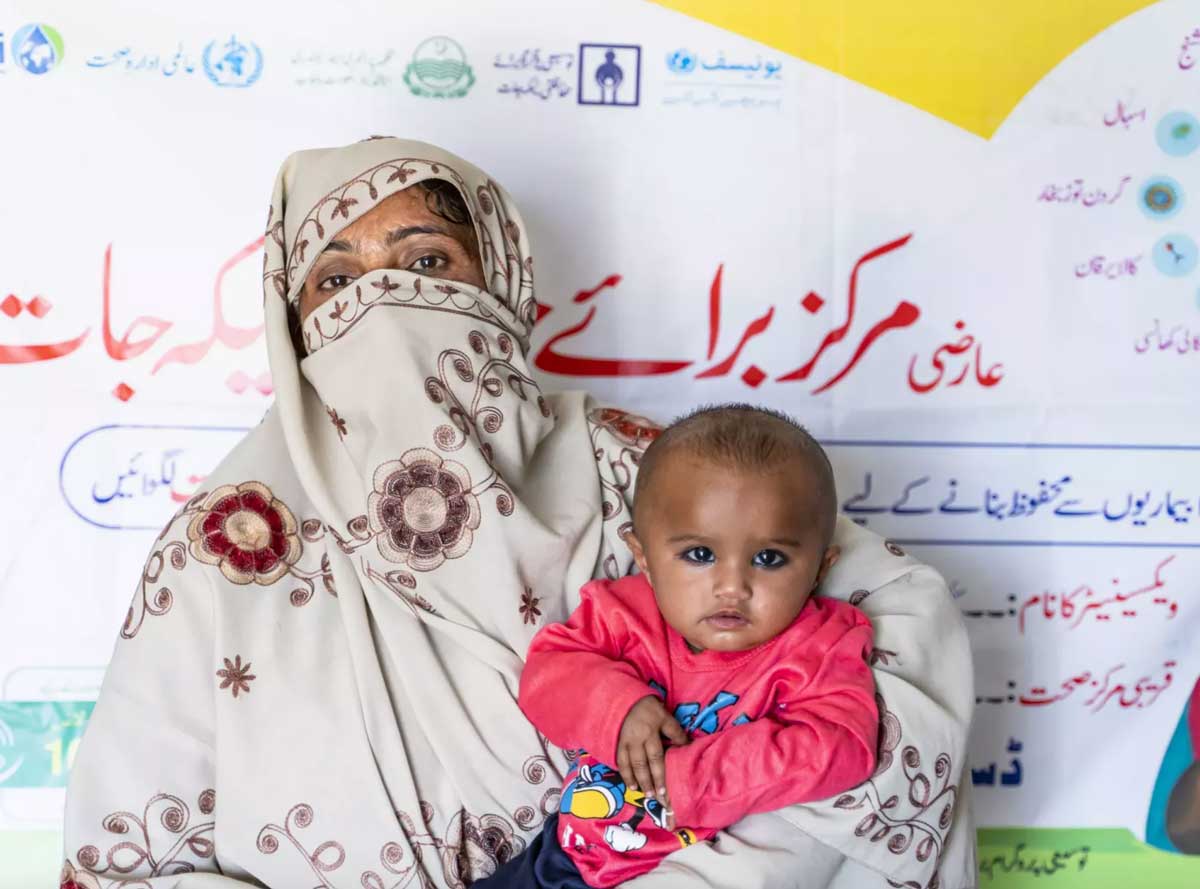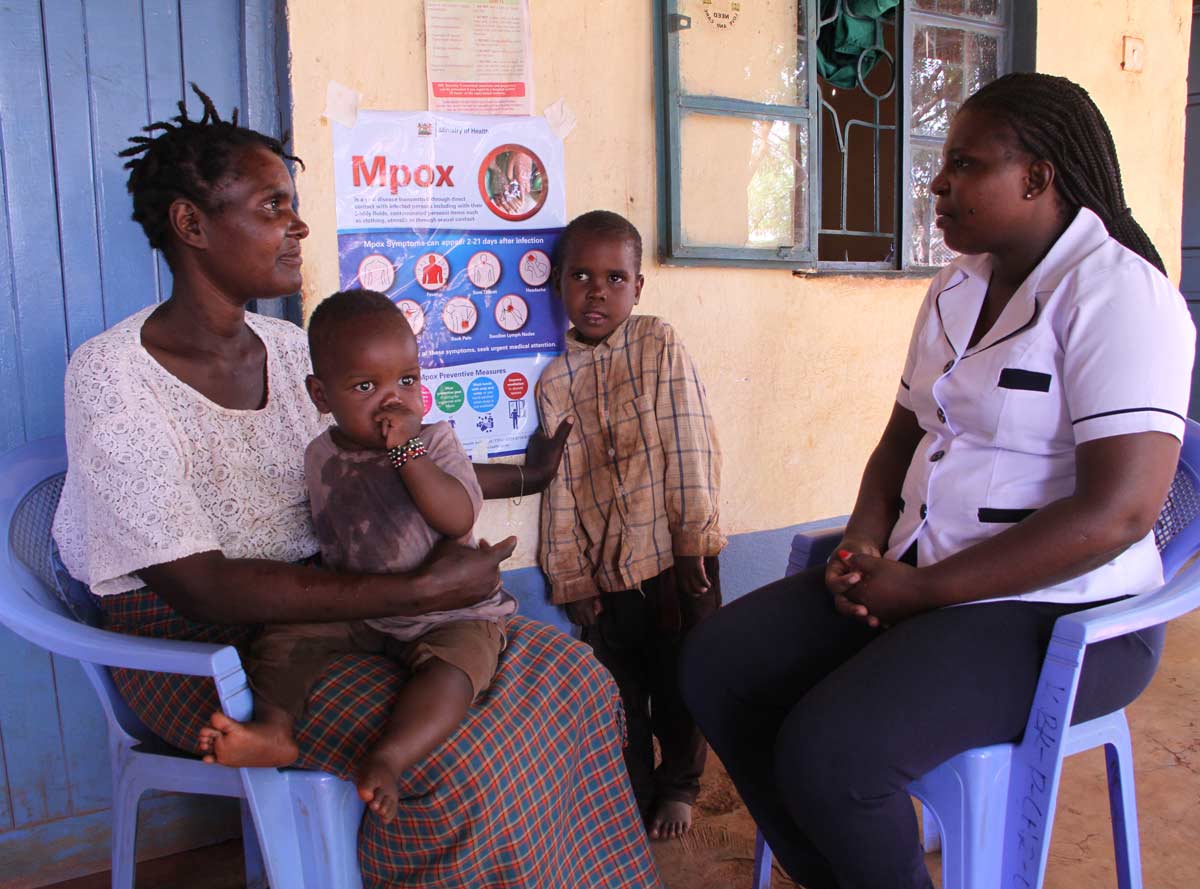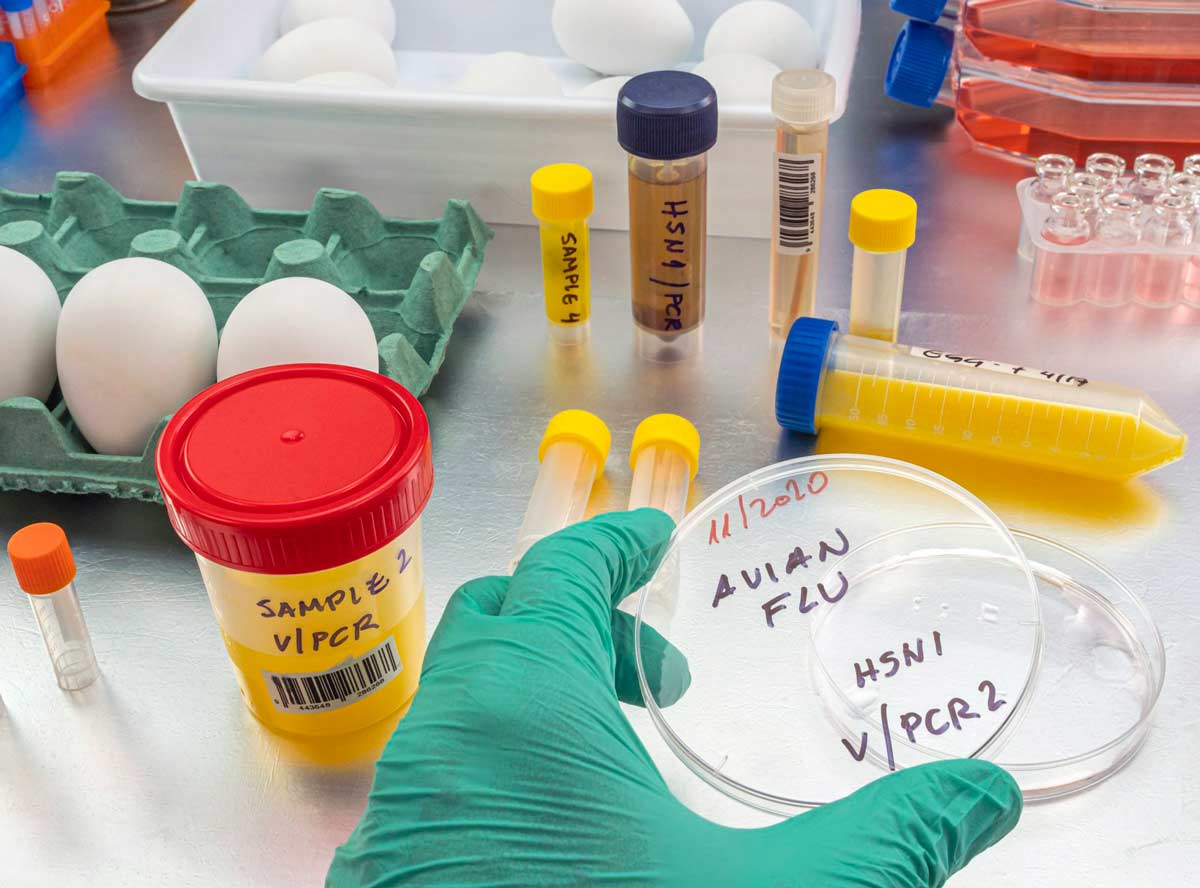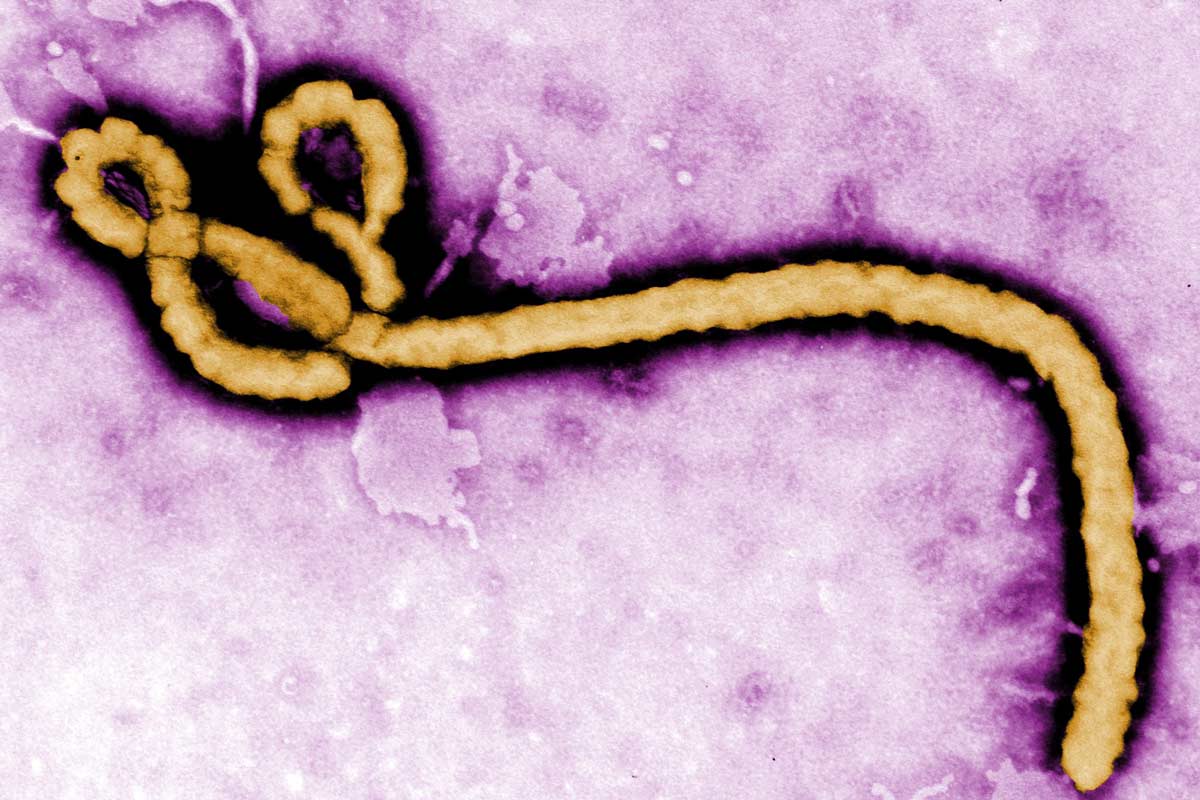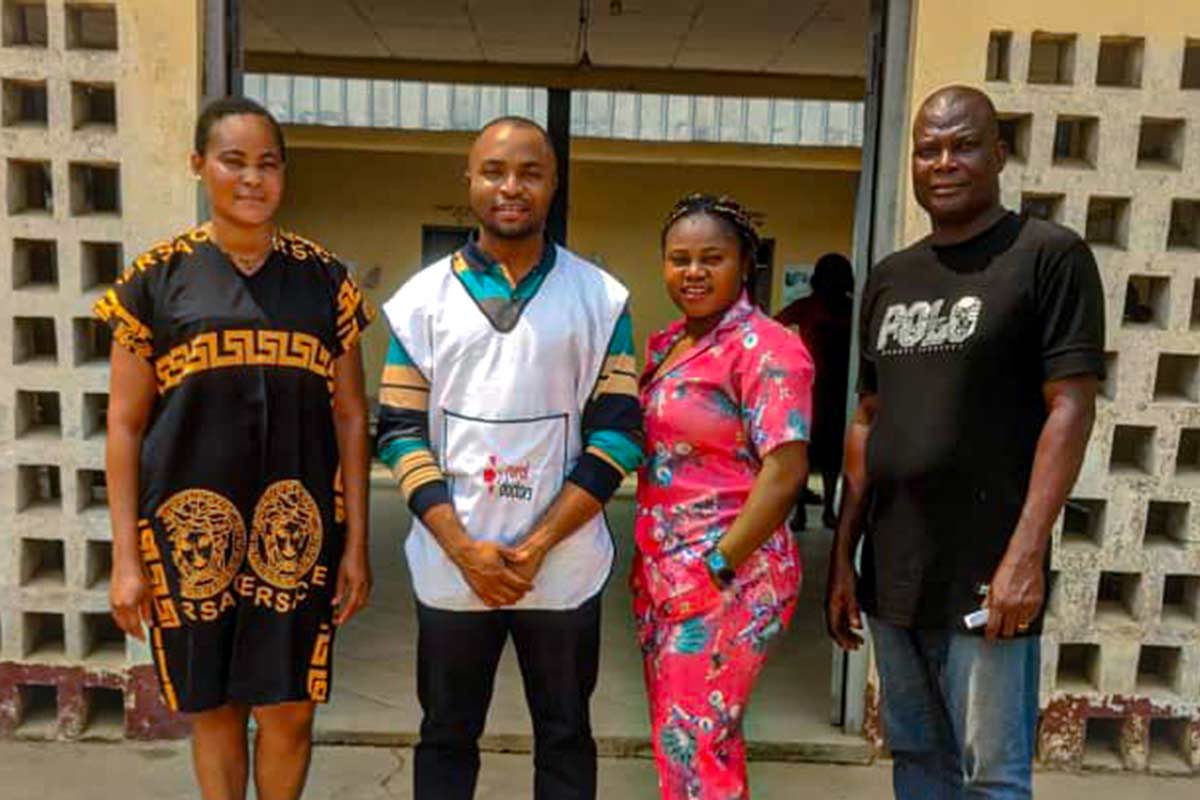Burkina Faso is taking on typhoid
The life-threatening bacterial infection has been surging in Burkina Faso, but a massive vaccination campaign, shielding more than 10 million kids, could mark the start of a new chapter.
- 13 February 2025
- 5 min read
- by Abdel Aziz Nabaloum
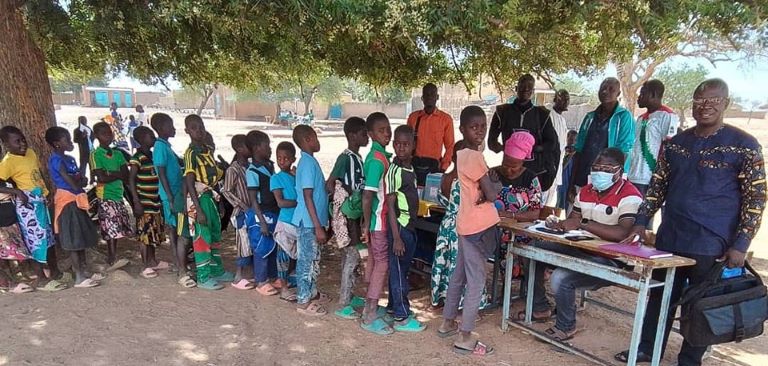
In the morning heat of Ouagadougou, outside the Tanghin-Dassouri Health and Social Promotion Center (CSPS), a line of parents patiently waits. Josiane Ilboudo tries to comfort her three-year-old daughter, Inès, who has just received an injection. Still in tears, the child nestles against her mother, seeking comfort. “I feel relieved, truly relieved. As parents, it is our responsibility to protect our children from these diseases.”
Beside her, Rosine Dayamba, carrying her two-year-old daughter, Noura, beams with a wide smile. “Today is a big day for us. Our children are finally protected.”
Like Inès and Noura, more than 10 million Burkinabè children between the ages of nine months and fourteen years were vaccinated against typhoid fever in an unprecedented nationwide campaign last month. Between January 23 to 29, 2025, thousands of healthcare workers travelled across cities and villages, administering vaccines in schools, markets and health centres.
The goal: to stop the spread of a disease that continues to severely impact Burkina Faso.
Persistent threat
Typhoid fever, caused by the Salmonella typhi bacterium, is primarily transmitted through contaminated water and food. In a country where access to clean water and sanitation remains a challenge, children and adolescents are particularly vulnerable. According to the Ministry of Health, over 120,000 cases were recorded in 2023, an increase on previous years.
That same year, typhoid was also the fifth leading cause of hospitalisation, with 17,844 patients admitted to wards, suffering high fevers, abdominal pain and sometimes life-threatening complications. Typhoid-linked outpatient consultations have also surged, from 88,792 cases in 2021 to over 120,000 in 2023.
Faced with the growing threat of typhoid fever, the World Health Organization (WHO) has been recommending the introduction of the typhoid conjugate vaccine (TCV) into routine immunisation programmes since 2017. “This vaccine is safe, effective and completely free,” says Dr Seydou Coulibaly, WHO representative in Burkina Faso.
Unprecedented mobilisation
To carry out the campaign, the Burkinabè government raised 16.2 billion CFA francs, with Gavi, the Vaccine Alliance, contributing nearly 12 billion CFA francs to purchase the doses. Each single-dose vaccine is enough to protect a person for over five years.
More than 52,000 health care workers and volunteers were mobilised across the country. In major cities like Ouagadougou and Bobo-Dioulasso, vaccination sites were set up in schools and markets to reach as many children as possible. In rural areas, mobile teams travelled long distances to ensure that even the most remote communities were covered.
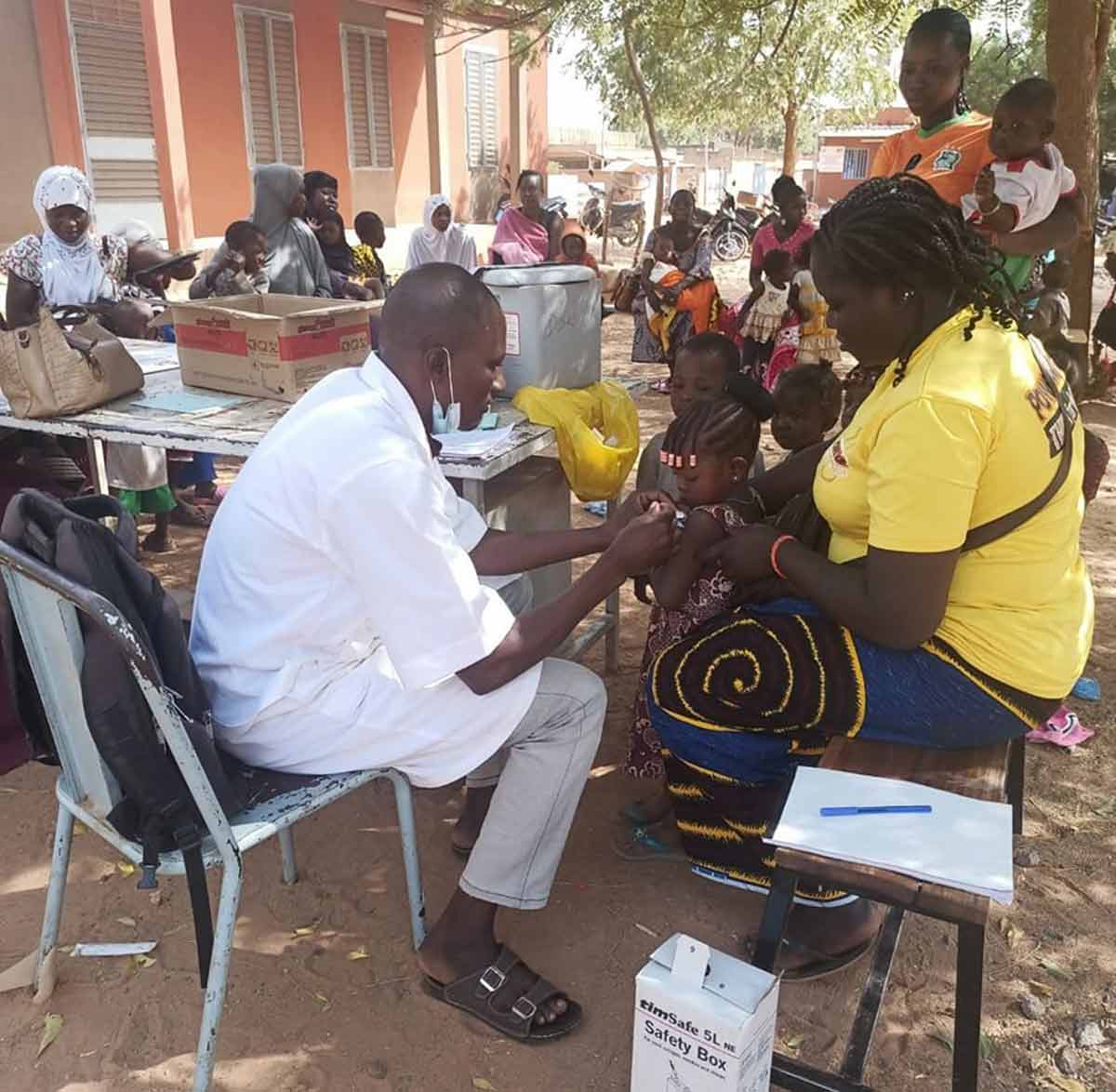
Catherine Zida, a mother of twins, heard about the campaign on the radio. Without hesitation, she brought her four-year-old sons, Aziz and Soumaila, to the Tanghin-Dassouri health centre. “I just want them to stay healthy, even if I don’t know much about this disease. I trust the doctors,” she says, watching her children receive their shots.
A success beyond expectations
On 30 January, the day after the campaign ended, health authorities announced impressive initial results.
While the goal was to vaccinate just over 10 million children, the final number reached 10.2 million – an extraordinary 100.2% coverage rate. This success was driven by the strong mobilisation of parents and overwhelming community support.
Outside the Tanghin-Dassouri health centre, Sawadogo Alida holds her 13-month-old daughter, Ornella, in her arms, visibly relieved. “They told me this vaccine will protect her from typhoid fever – it’s such a huge relief.”
Encouraged, authorities are already taking the next step. As the campaign ended, the typhoid vaccine was officially added to Burkina Faso’s routine immunisation programme. From now on, infants will receive this protection starting at nine months of age.
The fight is just beginning
While this campaign marks a major breakthrough, many challenges remain. Typhoid fever is closely linked to sanitation conditions, and vaccination alone will not eradicate it. Improving access to clean water and sanitation infrastructure remains a critical priority.
To maintain public trust and ensure continued vaccination uptake, a large-scale communication strategy has been put in place. “We have used media, social networks and community leaders to counter misinformation and keep people informed,” explains Somé Vouanda, a health services management advisor with the national vaccination programme.
Have you read?
Sabine Nyangao, a nurse at the Tanghin-Dassouri health centre, is confident that integrating the vaccine into routine immunisation will make a real difference. “Just like polio or meningitis, we hope typhoid fever will become increasingly rare in our hospitals. Every month, we will run outreach campaigns to reach as many children as possible.”
Community health workers will play a key role in raising awareness. By engaging directly with families, they will help reassure hesitant parents. Paediatric consultations will also be an opportunity to educate mothers about the benefits of the vaccine and encourage them to get their children vaccinated.
Burkina Faso’s success is part of a broader movement: in 2025, three more large-scale vaccination campaigns will take place in Kenya, Bangladesh, and Niger. As the first country to launch this initiative this year, Burkina Faso is leading the way, demonstrating the growing commitment of nations worldwide to combat typhoid fever through vaccination.

